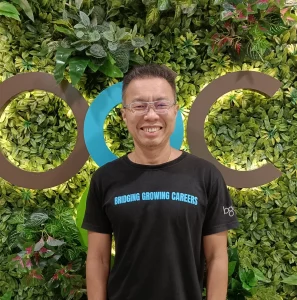Can you believe we’re already halfway through 2025? Time flies when you’re busy building awesome teams and growing your business, right? Here at BGC Group, we’re constantly immersed in the hiring landscape across the Asia-Pacific region, helping companies like yours find the talent they need to thrive.
The APAC market is incredibly dynamic, and staying ahead of the curve isn’t just a nice-to-have – it’s absolutely critical for attracting and retaining the best people. What worked last year might not cut it today, and what’s emerging now will define tomorrow’s workforce.
So, as we hit the mid-year mark, we wanted to share some of the key hiring trends that BGC Group’s experts are watching closely. These aren’t just buzzwords; they’re shifts that are actively shaping how businesses like yours need to approach talent acquisition and management in the latter half of 2025 and beyond.
Why This Mid-Year Check-Up Matters for Your Hiring Strategy
The APAC region is a mosaic of diverse economies, cultures, and talent pools. While some global trends apply, local nuances are huge. Economic shifts, technological advancements, and evolving candidate expectations mean that a static hiring strategy is a losing one.
Understanding these trends helps you:
- Anticipate Talent Needs: Spot skill gaps before they become critical.
- Optimize Your Recruitment Spend: Focus resources where they’ll have the most impact.
- Enhance Your Employer Brand: Become a magnet for top talent.
- Future-Proof Your Workforce: Build a team ready for tomorrow’s challenges.
Let’s dive into the trends!
Key Hiring Trends BGC Group is Observing Across APAC in 2025
1. Economic Resilience & Sectoral Shifts: A Mixed Bag, But Opportunities Abound
While global economic headwinds persist, many APAC economies have shown remarkable resilience, driven by strong domestic demand and strategic investments. However, this isn’t uniform, and we’re seeing distinct shifts in hiring hotspots:
- Tech Sector Evolution: While the tech boom of previous years has matured, demand for specialized tech roles (AI/ML engineers, cybersecurity experts, cloud architects) remains robust, particularly in innovation hubs like Singapore, Bangalore, and Sydney. We’re seeing less generalist hiring and more targeted, high-value recruitment.
- Green Economy Growth: The push for sustainability is creating new job categories in renewable energy, ESG (Environmental, Social, and Governance) consulting, and green manufacturing across the region. This is a rapidly expanding area for talent.
- Healthcare & Life Sciences: Post-pandemic, investment and hiring in healthcare, pharmaceuticals, and biotech continue to be strong, especially in markets with aging populations or a focus on medical innovation.
- Manufacturing & Supply Chain Resilience: Companies are re-evaluating and strengthening their supply chains, leading to consistent demand for talent in advanced manufacturing, logistics, and supply chain management, particularly in Southeast Asia.
2. The Enduring Talent Crunch: Niche Skills Remain King
The “war for talent” isn’t over; it’s just gotten more surgical. While overall hiring might have normalized in some areas, the demand for highly specialized and critical skills continues to outstrip supply across APAC.
- Digital Transformation Expertise: Roles in data analytics, digital marketing, e-commerce management, and UX/UI design are still fiercely competitive.
- AI & Automation Specialists: As businesses integrate AI, the need for professionals who can develop, implement, and manage AI solutions is skyrocketing. This isn’t just about coding; it’s about strategic thinkers who understand AI’s business applications.
- Cybersecurity Professionals: With increasing digital threats, cybersecurity remains a top priority, driving consistent demand for skilled professionals to protect digital assets.
- Soft Skills in High Demand: Beyond technical prowess, employers are prioritizing soft skills like adaptability, critical thinking, problem-solving, and strong communication. These are seen as crucial for navigating rapid change and fostering collaboration.
3. Hybrid Work Models: Towards Optimization
The initial scramble to implement hybrid work is settling into a more strategic phase. Companies are refining their models to balance flexibility with collaboration and culture.
- Formalized Policies: More organizations are establishing clear, consistent hybrid work policies, defining office days, remote days, and expectations for both.
- Technology for Seamless Collaboration: Investment in tools that support remote and hybrid teams (e.g., advanced video conferencing, collaborative platforms, secure remote access) is paramount.
- Leadership Training for Hybrid Management: Employers are recognizing the need to equip managers with skills to lead effectively in a hybrid environment, focusing on engagement, performance, and well-being.
- Global Talent Pools: Hybrid work has opened doors to talent beyond geographical boundaries, allowing companies in APAC to tap into a wider pool of candidates, though this also introduces complexities in terms of local labor laws and tax implications.
4. AI’s Dual Impact: Reshaping Roles & Recruitment Itself
Artificial Intelligence isn’t just changing what jobs exist; it’s changing how we find people for them.
- Augmented Roles, Not Just Replaced: Many roles are being augmented by AI, requiring employees to work with AI tools. This means a shift in required skills towards AI literacy, prompt engineering, and data interpretation.
- New AI-Specific Roles: We’re seeing the emergence of roles like AI Ethicists, AI Trainers, and AI Integration Specialists.
- AI in Recruitment: AI-powered tools are increasingly being used for resume screening, candidate matching, and even preliminary interviews, making the hiring process more efficient but also requiring candidates to optimize their applications for AI filters.
5. Candidate Expectations: It’s More Than Just Salary (Still!)
While competitive compensation is always important, candidates in APAC are increasingly looking beyond the paycheque.
- Well-being & Mental Health Support: A strong focus on employee well-being, including mental health support, flexible hours, and work-life balance, is a significant differentiator.
- Purpose & Values: Candidates, especially younger generations, want to work for companies whose values align with their own and who demonstrate a clear commitment to social responsibility.
- Career Development & Upskilling Opportunities: The chance to learn new skills, grow within the company, and have a clear career path is a major draw.
- Inclusive Culture: A genuinely diverse, equitable, and inclusive workplace is non-negotiable for many job seekers.
6. Upskilling & Reskilling: A Strategic Imperative for Retention
With rapid technological advancements and evolving job roles, continuous learning isn’t just a buzzword; it’s a business necessity.
- Internal Mobility: Companies are increasingly looking to upskill and reskill existing employees to fill new roles, fostering internal talent pipelines and improving retention.
- Learning & Development Programs: Investment in robust L&D programs, including online courses, certifications, and mentorship, is becoming a key part of the employee value proposition.
- Skills-Based Hiring: There’s a growing shift towards hiring based on demonstrable skills rather than just traditional qualifications or degrees, making internal mobility and reskilling even more vital.
What This Means for You, the Employer
These trends highlight a crucial message: proactive and adaptive talent strategies are key to success in APAC.
- Review Your Skill Needs: Regularly assess what skills your business will need in the next 1-3 years.
- Invest in Learning: Support your current employees in acquiring new skills.
- Refine Your EVP: Ensure your Employee Value Proposition (what you offer beyond salary) truly resonates with today’s candidates.
- Embrace Flexibility: Be open to and strategic about hybrid and flexible work models.
- Leverage Technology (Wisely): Explore how AI can enhance your recruitment processes, but remember the human touch remains essential.
How BGC Group Helps You Navigate the APAC Hiring Landscape
At BGC Group, we’re more than just recruiters. We’re your strategic partners, equipped with real-time market insights and a deep understanding of the APAC talent pool.
- Market Intelligence: We provide you with the latest data and trends, helping you make informed hiring decisions.
- Access to Niche Talent: Our extensive network allows us to connect you with highly skilled professionals who are hard to find.
- Strategic Advisory: We don’t just fill roles; we advise on talent strategies that align with your business goals and the evolving market.
- Efficient Recruitment Processes: We streamline your hiring, ensuring you attract, assess, and onboard the right talent efficiently.
Don’t let the complexities of the 2025 hiring landscape slow you down. Partner with BGC Group and stay ahead of the curve, ensuring your business has the talent it needs to thrive in APAC.
Ready to build your future-ready team? Contact BGC Group today for a chat about your hiring needs!

Tristan Chew
I'm Tristan, CEO of BGC Group. My role keeps me constantly immersed in the ever-evolving recruitment landscape across the Asia-Pacific region. I'm dedicated to bringing you the sharpest insights and the very latest trends. My goal is to help businesses like yours build the strongest teams possible for tomorrow's challenges.
